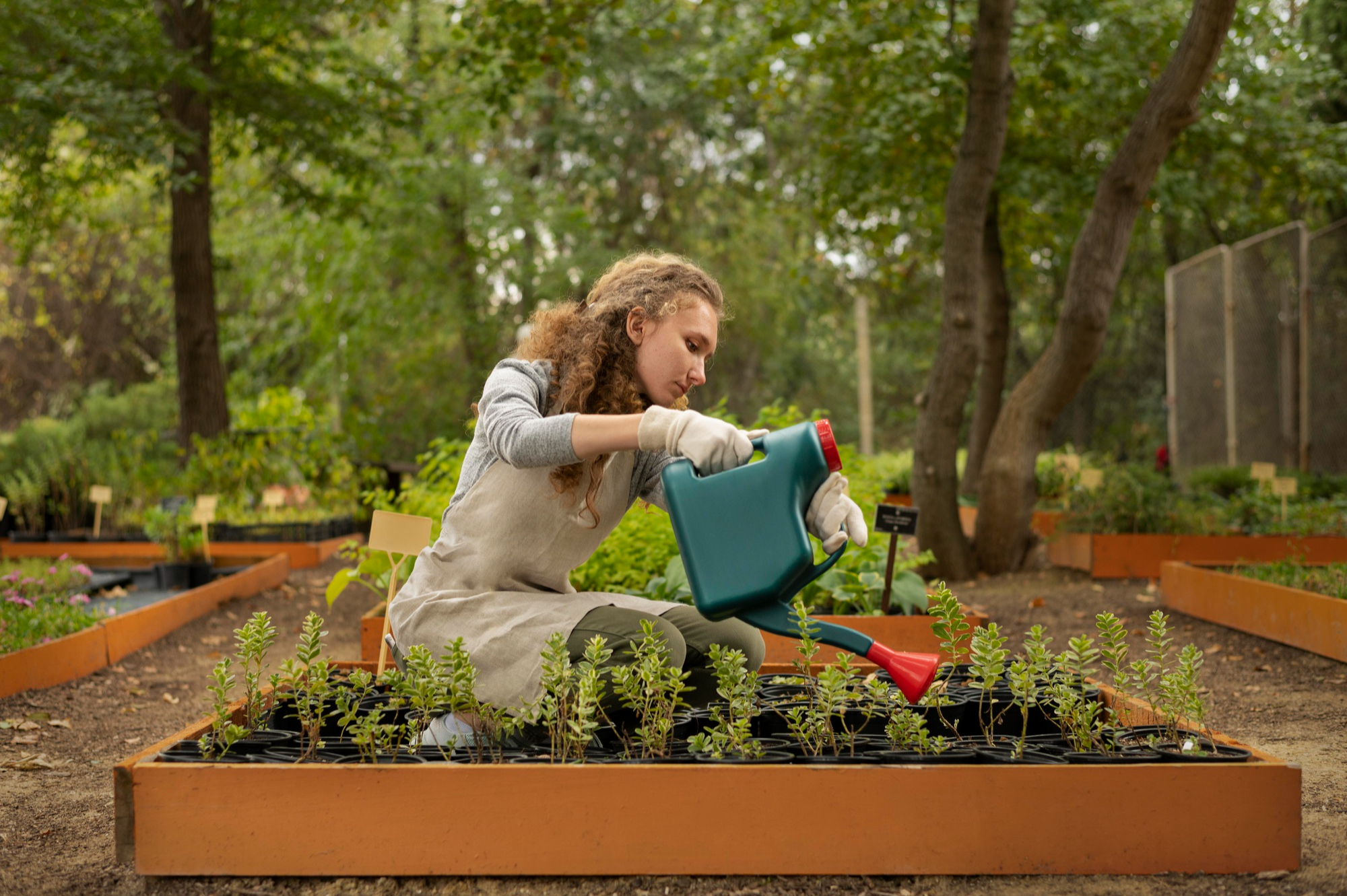A home garden is more than a hobby - it's a sanctuary, a source of fresh produce, and a step toward sustainable living. If you're planning to buy a property with the dream of cultivating your garden, it’s important to consider factors that will support your gardening goals. Here's a guide to finding the perfect property for your green ambitions.
1. Assess Sunlight Exposure
Sunlight is essential for healthy plant growth. Look for properties with ample direct sunlight, particularly in the areas where you envision planting your garden. Ideally, these areas should receive at least 6 to 8 hours of sunlight daily for most vegetables and flowers. Avoid properties with excessive shading from buildings or tall trees unless you're planning a shade garden.
2. Examine Soil Quality
The foundation of any thriving garden is hidden in the fertile soil. During property visits, you must check if the soil is well-draining, loamy, and rich in organic matter/nutrients. Bring a soil testing kit to evaluate pH levels and nutrient content. If the soil is compacted or poor, consider the feasibility of improving it through composting or raised beds.
3. Check Water Access
Hassle-free access to water is crucial for a successful thriving garden so you must ensure the property has outdoor water faucets conveniently located near potential garden sites. Investigate water quality, availability, and cost, especially in rural areas where well water might be the primary source.
4. Size and Layout
Area matters, so the size of your garden will determine what and how much of it you can grow. Look for properties with ample yard space that fits your vision, whether it's a small herb garden or a sprawling vegetable patch. The layout is equally important, flat or gently sloped land is easier to cultivate than steeply sloped areas.
Real Estate Service: Property Search and Expert Guidance
If you're unsure of where to start then a real estate agent can help you identify properties with the space and layout that best suit your gardening plans. They can also offer advice on land use and zoning regulations to make sure the property can accommodate your gardening vision.
5. Consider the Climate
Your local climate significantly influences what you can grow so research the area’s growing zone and ensure the climate aligns with the plants you wish to cultivate. Properties in regions with longer growing seasons or mild winters may allow for a greater variety of crops.
6. Check for Zoning and HOA Restrictions
Some properties may have zoning laws, or Homeowners Association (HOA) rules that restrict certain types of gardening activities - such as raising chickens or small livestock, building greenhouses, or planting large trees. Review these regulations to avoid surprises.
7. Assess Drainage
Proper drainage prevents waterlogging, which can harm plants. Therefore, observe the property thoroughly after rain to check for standing water or soggy areas in the land because poor drainage may require significant effort to rectify.
8. Look for Pest-Free Areas
Don't forget to examine the property for signs of pest infestations which could be moles, insects that eat out roots, rabbits, or invasive plant species. Pests can be managed with a number of available options, but properties with significant pest problems will require extra effort to maintain a healthy garden.
9. Think About Future Expansion
If gardening is a growing passion for you, consider if the property has room for expansion. Could you add a greenhouse, a composting area, or even fruit trees in the future to custom-design your small orchard? A property with potential for growth will ensure that you can adapt as your gardening needs evolve.
10. Proximity to Gardening Resources
A big plus will be if the property’s proximity to gardening supply stores, nurseries, pesticide stores, and community gardening programs is considered because being close to such resources can save time and effort as you develop your garden.
Final Thoughts
Finding the best property for your home garden requires a careful evaluation of sunlight, soil, water, and layout among other factors. With the right property, your dream of a lush, productive garden can flourish for years to come and if you're ready to start your search then working with a knowledgeable real estate agent can simplify and ease the process while helping you find a property that matches your gardening goals and vision.
